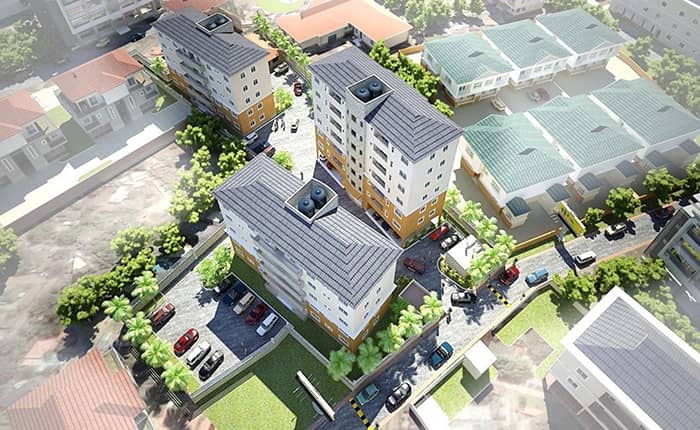
By Danlami Nasir Isah
The Nigerian property market is experiencing high patronage as more investors are now seeing the real estate sector as one essential components of the economy.
Statistics from the African Development Bank projected that the economy is set to grow by 2.9% in 2021, and real estate is factored into the projections; and described by pundits as a significant contributor.
Be it as it may, the problem of the property market is the absence of an enabling environment and a local market to aid the sector grow. With the coming of the African Continent Free Trade Area Agreement (AfCFTA), there is a seemingly renewed hope for the real estate sector as the agreement will open up the market for indigenous companies to explore.
It is expected that local Nigerian businesses will have new opportunities regarding regional exports, with newly created supply chains which should be efficient and sustainable through the Agreement. Nigeria is already utilizing regional trade opportunities, contributing approximately 76% of total trading volumes in the Economic Community of West African States (ECOWAS) region. The coming of AfCFTA will only further enhance this trend, creating new opportunities and spurring economic and trade growth.
The AfCFTA has created significant opportunities for Nigeria to drive job creation and capacity building. With the creation of a single liberalized market for trade in services for the continent, the AfCFTA enables both the trade in products and services as well as human capital.
Accordingly, Nigeria, with a high number of multi-sector professionals compared to other regional markets, will be able to expand knowledge and expertise cross-borders. Specifically, the agreement will significantly enhance local content in the property sector, further ensuring that value created by the industry goes beyond resource revenues, with job creation, capacity building, and skills transfer expanding across the region.
Nigeria has become a leader in local content, with progressive policies and supportive legislature ensuring that the local population not only benefits from the real estate sector developments, but to be a key enabler of that growth.
Federal government’s commitment
Meanwhile, in its drive to see that local content development is advanced, the Federal Government has directed Ministries, Departments and Agencies (MDA) to prioritize indigenous professionals for planning, design and execution of national projects. The government at the center also said that foreign professionals should only be considered where it had been certified that the local expertise is not available.
Speaking at the Inauguration of the Presidential Monitoring and Evaluation Council of the Executive Order 5 at the State House recently, President Muhammadu Buhari said: “The Federal Government will introduce Margin of Preference in National Competitive Bidding in contracts, in the evaluation of tenders, from indigenous suppliers of goods manufactured locally over foreign goods.
“All MDAs shall ensure that any professional practicing in Nigeria must be duly registered with the appropriate regulatory body in Nigeria. All MDAs shall ensure that for all consultancy contracts awarded to foreign companies, engineering drawings, necessary calculations, design, etc are made available to their corresponding Nigerian partners, including arrangements with Small and Medium Enterprises (SMEs) as partners towards local production of needed materials,’’ he declared.
He explained that the Executive Order No. 5 was aimed at placing Nigerian professionals and manufacturers at the centre of the Nigerian Economy. The President noted that the Executive Order 5 will be used by the administration to midwife a new beginning that would transform Nigeria’s economy from resource-based to a knowledge based and innovation driven.
President Buhari said suppliers and contractors under national competitive bidding process shall disclose local material (processed or unprocessed), where available and needed for the execution of project, adding that designs for all contracts, programmes, projects, should be in English Language before signing.
“The Ministry of Interior shall ensure that Expatriate Quota for projects, contracts, and programmes are granted according to the provisions of the Immigration Act and other relevant laws. This will apply where qualifications and competence of Nigerian Nationals are not available or cannot be ascertained, which shall be contingent on training such number of persons as may be required for the execution of the contract or project.’’
The President, who is also Chairman of the Presidential Monitoring Evaluation Council, said the team would oversee the general implementation of the Executive Order 5, and the secretariat would be domiciled at the Federal Ministry of Science, Technology and Innovation, supported by the Strategy Implementation Task Office for Presidential Executive Order 5 (SITOPEO-5).

